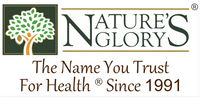When you are eating organic food, did you know that there are certain food items that tend to have a higher level of pesticide use and should be avoided?
This is called the ‘Dirty Dozen’ list, which is released by the Environmental Working Group.
As eating organic food can be expensive, advocates may recommend at least buying these 12 organic food items to ensure that you are protecting you and your family from pesticides and synthetic fertilizers present in non-organic foods.
While most families understand the importance of eating more fruits and vegetables, we also understand that not everyone has the budget to eat a completely organic food diet. So instead, the strategy is pick the food items that contain the most amount of pesticides and choose organic sources for these.
The Dirty Dozen list
Every year, the Environmental Working Group (EWG) releases a Shopper’s Guide to Pesticides in Produce that names the fruits and vegetables with the highest and lowest amounts of pesticides. The produce is tested after it's brought home from the grocery store and washed.
Here is the list for 2020:
Strawberries
According to the Environmental Working Group (EWG), more than 90 percent of the strawberries sampled tested positive for two or more pesticides. Scary enough to get you started on eating organic? You should at least splash out on organic strawberries to ensure peace of mind.
Spinach
Spinach has more pesticide residue by weight versus other produce tested, with high amounts of permethrin found on many samples. The good thing is that it’s easy to find organic spinach. You can even buy frozen organic spinach to be used in smoothies, soups and dishes.
Kale
Ironically, one of the top healthy vegetables - kale - has over 92 percent of samples that tested positive for two or more pesticide residues. Some samples even contained over 18 different pesticide residues. Luckily, you should be able to find great organic sources of kale in most stores.
Nectarines
Almost all of the conventional nectarine samples, 94 percent, contained two or more pesticides.
Apples
Apples have a thin peel, which allows chemicals used in farming to contaminate the rest of the flesh easily. About 90 percent of non-organic apples had pesticide residues detected on them, and some of them contained diphenylamine, a pesticide banned in Europe.
Grapes
Over 96 percent of all grape samples contained traceable pesticide residues.
Peaches
99 percent of peach samples contained pesticide residues and contained up to 4 different type of pesticide residues.
Cherries
About one third of the cherries tested contain a pesticide that has been linked to cancer that is banned in Europe.
Pears
More than half of the pear samples detected residue from five or more pesticides.
Tomatoes
Most of the non-organic tomato samples tested positive for nearly four types of pesticides. However, it is easy to find good, organic alternatives for tomatoes, including canned products.
Celery
More than 95 percent of conventional celery samples detected pesticides in the vegetables.
PotatoesNon-organic potatoes have more pesticide residues by weight than any other crop tested, including one pesticide that is said to negatively impact the central nervous system.
Use the Dirty Dozen For Your Organic Shopping List
We understand that not everyone eats organically - yet. However, having statistics and actual data about the amount of pesticides present in your common everyday fruits and vegetables can be a wake up call!
Those who have been wanting to try out an organic diet could start with the Dirty Dozen as an ‘organic shopping list’ to experiment with their weekly grocery shop. Another great alternative is to buy frozen or canned organic products, which have all the benefits of organic produce but at a cheaper price.
Eat Organic with Nature’s Glory Organic Products
At Nature’s Glory, we are committed to providing organic food products to our customers since 1991. As more and more people are beginning to understand why eating organic is so important, we want to be there to offer quality organic food items for them to ensure food safety.
Therefore, we have continued to bring in certified organic produce mostly from Australia and Malaysia, and are one of NASAA’s Certified Organic (NCO) operators under the registration number 8131P in Singapore.
We also have a 100% Organic Assurance, including various in-house testing and verifications for our food items before we even put them on our shelves to be sold. Moreover, we store our fresh food produce in a regulated cool and dry environment and never fumigate the warehouse to ensure no contamination of the products.
We have served our loyal customers for almost 3 decades and hope to continue to do so especially for those who are new to organic eating for years to come.
Do check out our Nature’s Glory ecommerce store here for healthy, organic food products for the whole family.

